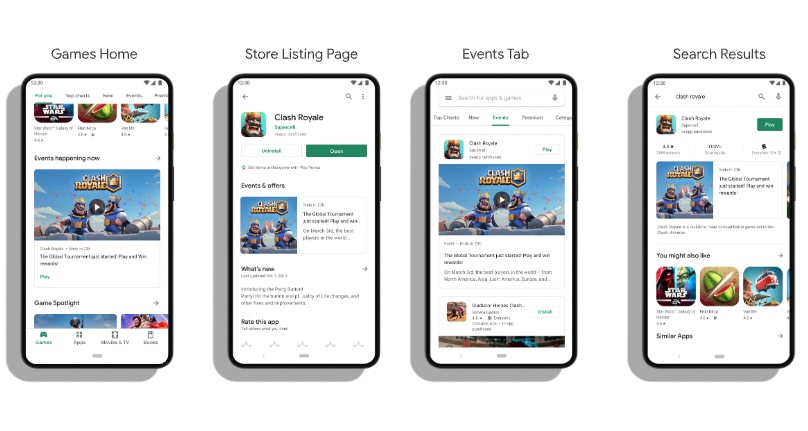Google today announced that it will make several changes to its Google Play Store. These changes will affect Android apps’ visibility, how developers market their apps to consumers, and other trust and safety concerns. Google is now telling developers that apps that are both technical and intuitive will be promoted in the Play Store in a greater number of places. This will allow consumers to find them.
These changes indicate that Google is keen to be more editorial about how apps are distributed and featured on the Play Store. This is an area Apple has traditionally been more focused on in the past, especially after its App Store overhaul in 2017,, which saw it seperate apps and games into separate tabs and introduce editorial content (tips, articles, etc.) to the main page.
The Play Store isn’t quite so far, however. Google claims it will instead steer consumers away form lower-quality apps, changing the way it decides which apps are visible on its platform.
In particular, Google is implementing new quality thresholds to exclude apps that exceed certain crash and “app not responsive (ANR) rates. This applies both to the overall model and per-phone model. Google states that apps that do not meet these criteria will be removed from certain areas of the Play Store. This includes recommendations. Other apps may include a warning in their store listing to help set appropriate expectations.

Image Credits: Google
Play Store editors will look beyond technical quality to assess a variety of factors. These include whether the app or game is visually appealing, how well integrated ads are, and if it is easy to navigate, use and manage. They will also verify that the app meets Android’s best practices and quality guidelines.
The company will also offer new content formats for developers and a type of Custom Store Listing to make it easier to place apps in front more people.
In the case of the latter, developers will have the opportunity to leverage LiveOps — special merchandising units that allow them to promote apps on the Play Store. These are currently used to promote major app updates, discounts, and announcements about pre-registration. Apple launched a similar feature last year. These types of marketing units give app store a more immediate feel because they can market to reasons to download and launch apps right now instead of serving as general promotions.

Image Credits: Google
Google notes that developers using LiveOps have seen a 3.6% increase in revenue and 5.1% increase in 28-day daily active users versus similar titles that don’t take advantage of the offering. It will now rename LiveOps “Promotional Content” in order to reflect its longer-term plans to expand this feature to support other content types. This includes promotional units that will appear more prominently within the Play Store’s homepages and search and discovery areas as well as directly in apps via deeplinks.
Developers soon will be able create a new type listing that allows them to target churned customers (people who have tried the app/game, but then stopped using it). The “Churned user Custom Store Listings” format will allow developers to display a message that aims to re-acquire users. It will be available closer to the end of the year.
Two additional changes are made to app safety and protect developers and consumers who download their apps from coordinated attacks.
Google is updating the Play Integrity API. This API helps to protect against fraudulent traffic and risky traffic. Developers will have the ability to modify API responses, run tests in Play Console, and analyze API responses using new reporting. Developers will also be able debug API responses using the Play Store app’s settings on any device.
Plus: Google has announced a new program to combat coordinated attacks on app ratings, reviews, and ratings. Although the company did not provide much detail about how this program would work it stated that developers would be able to fight against unfair reviews from users, or competitors. This was a concern that became public recently when Gas, a top-ranked social app, was the subject of a hoax that claimed that it was being used to human trafficking. Users were forced to delete their accounts.
These changes are a result of earlier updates to Google Play Store that were designed to make it easier for consumers to find non-smartphone apps which can be used on their smartwatches or TVs. Google warned developers earlier this year that it would block and hide downloads of outdated apps. Google alerted developers they must now, as of November 1, 2022, target API level 30 (Android 11) or above if they want their app to be discoverable on the play Store by new users running newer versions of the Android OS.